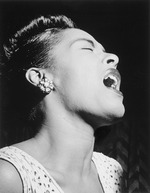 I’ve got a quiz for you. Match the novel excerpt with the author. Here are three excerpts: An abandoned auto court in the San Berdoo foothills; Buzz Meeks checked in with ninety-four thousand dollars, eighteen pounds of high-grade heroin, a 10-gauge pump, a .38 special, a .45 automatic and a switchblade he’d bought off a pachuco at the border—right before he spotted the car parked across the line: Mickey Cohen goons in an LAPD unmarked, Tijuana cops standing by to bootjack a piece of his goodies, dump his body in the San Ysidro River. It is a truth universally acknowledged, that a single man in possession of a good fortune must be in want of a wife. However little know the feelings or views of such a man may be on his first entering a neighbourhood, this truth is so well fixed in the minds of the surrounding families, that he is considered the rightful property of some one or other of their daughters. A white boy rode flatfoot on a skateboard, towed along, hand to shoulder, by a black boy pedaling a brakeless fixed-gear bike. Dark August morning, deep in the Flatlands. Hiss of tires. Granular unraveling of skateboard wheels against asphalt. Summertime Berkeley giving off her old-lady smell, nine different styles of jasmine and a squirt of he-cat. And here are the three authors: Jane Austin, Michael Chabon, and James Ellroy. OK, match them up. I’ll give you five minutes. ...dum, dum, dum dah, dah, dum, dum, dum… OK, times up. The answers are: number 1, James Ellroy, from L.A. Confidential; number 2, Jane Austin, from Pride and Prejudice; number 3, Michael Chabon, from Telegraph Avenue. Did you get them right? I bet you did. Why am I so confident that you knew the answers? Because each author has a unique voice. If you’ve been writing for some time now, someone has bound to have told you: “You need to find your voice.” So, what is voice? The answer to that is controversial. Different writers will tell you different things. As a compromise I’ll use the Wikipedia definition: it’s “the individual writing style of an author, a combination of their common usage of syntax, diction, punctuation, character development, dialogue, etc., within a given body of text (or across several works).” So, how do you develop your voice? First of all, like anything worthwhile developing your voice takes time. Its not an overnight affair and it may take years for your unique voice to come to the fore. But, it will be worth it. You develop your voice like any other ability—you practice. That means writing regularly and writing often. You can help develop your voice by reading great authors, authors whose work has stood the test of time. Not only the classics but contemporary writers, also. I recall my reaction to reading Steinbeck’s Grapes of Wrath for the first time. I became so angry I wanted to toss the paperback across the room, because I realized that no matter how much I tried I’d never be able to write like Steinbeck. But, I continued reading and I read other greats. Now, I’ll be the first to admit that my writing doesn’t approach the level of Steinbeck. But, it is much better that when I started. And, I think I have a unique voice as a result. Read the greats. Over time you’ll find yourself picking and choosing what works for you. Another way to help you develop your voice is to write poetry. If you’re sincere in your efforts, poetry can open you up to a new vulnerability and release hidden dreams. All necessary for a unique voice. Voice is more than writing style or technique. It is your personality, your sensitivities, your whole being. Voice, in the long run, is about you being you. Your vision, your love, your faith being laid bare on the page. No pretense, no effort to put up a façade of respectability. It is raw, it is naked, and it is sincere.
0 Comments
Leave a Reply. |
Archives
June 2023
Categories |
 RSS Feed
RSS Feed